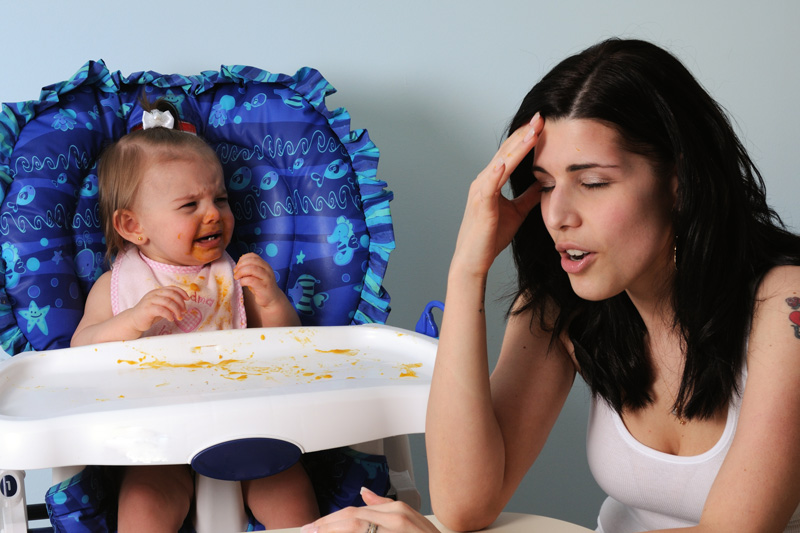Being a new mom is one of the most overwhelming experiences anyone can go through. As soon as your little one makes an entry in the world, life as you know it transforms completely! And even though every mother gets nine months of heads up time, nothing can quite prepare you for the journey of motherhood. Though the birth of a child is usually a time of great joy and happiness, feelings of anxiety and stress can also creep in. The weight of responsibility may bear down on you, and you may find yourself snapping at others, getting defensive or just feeling irritable and moody. Relax, this is normal! Don’t be hard on yourself – the major hormonal changes taking place in your body have a key role to play in this.
Many mothers may feel like they don’t have time or energy to do anything about the so called “baby blues”, but what they don’t realize is that taking care of themselves in this fragile period is just as important as takingcare of the baby.
Out of every eight mothers, one develops quite major Post Partum Depression. Many of them go undiagnosed. A new mother can get overwhelmed manier times, doubt her abilities in taking care of the new born, may become very irritable and unreasonable, even go into crying spells frequently. This is quite normal – a part of the post delivery Baby Blues. These can start form the second date until the fifth day of baby birth, last for a few days and then disappear gradually.
However, if your mood swings and feelings of anxiety keep escalating and do not go away within a six weeks, you may wish to discuss this with your doctor. If you feel increasingly depressed and detached from your baby, or have thoughts of harming yourself or your baby, you may be suffering from Post-Partum Depression, which is a medical condition. With all your focus on your little one, it’s easy to sweep your own problems under the carpet, but Post-Partum Depression, if left untreated, can spiral into serious depression with devastating consequences.
Causes of Post Partum Depression:
The exact mechanics of Post Partum Depression are not known as yet. The brain’s complex reaction to the hormonal changes post delivery could be one of the main causes. Those with a personal or family history of depression or with a history of premenstrual syndrome are at increased risk. Social factors also play a role. Those women who do not have very cordial relationship with the husband, have limited finances and lack of social support to help looking after the baby or those who give birth to multiples or have an extremely demanding, colicky baby are also at a higher risk.
Treatment:
- A strong supporting network to help in taking care of the newborn so that you get adequate sleep as well as rest.
- Eat healthy nutritious diet with enough water to keep you hydrated.
- Perform some basic exercises or walk to elevate your moods.
- Talk to other mums in your class for getting the invaluable mother to mother support.
- Some family member or close friend to care of the baby at night.
- Counselling with one on one or a large support group.
- Medications in extreme cases, which are formulated to be safe during breast feeding.
Hence mothers, if you genuinely feel something is not right, you need to receive proper help. Every new mother deserves to feel happy and enjoy the new phase of her life – motherhood.

